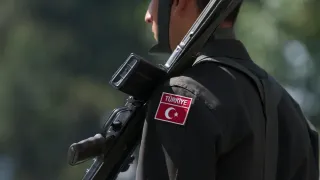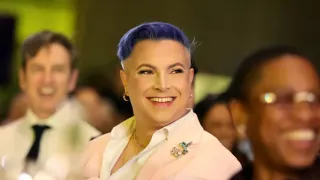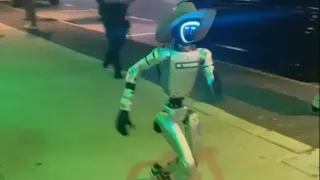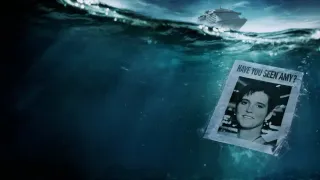June 3, 2016
Seven-Day Bike Ride from SF to LA is World's Largest HIV/AIDS Fundraiser
Winnie McCroy READ TIME: 5 MIN.
From June 5-11, 3,200 cyclists and volunteer 'roadies' will set out on a 545-mile journey from San Francisco to Los Angeles in the world's largest HIV/AIDS fundraiser, AIDS/LifeCycle. The event, which supports the San Francisco AIDS Foundation and the HIV/AIDS services of the Los Angeles LGBT Center, is on track to raise more than $16M this year for these vital, life-saving services.
Now in its 15th year, the event is a fully-supported ride that helps raise awareness about the ongoing HIV epidemic, in addition to funding HIV testing and screenings for other STIs, HIV medical care, prevention services and more.
"The dedication of AIDS/LifeCycle participants has made it possible for us to provide leading-edge medical services to people living with HIV/AIDS at our Jeffrey Goodman Special Care Clinic and to offer PrEP (pre-exposure prophylaxis) and PEP (post-exposure prophylaxis) to those most at risk of becoming infected, particularly among gay and bisexual men of color," said Lorri L. Jean, CEO of the Los Angeles LGBT Center. "As we journey 545 miles through California, we remember the many lives lost to the disease -- and celebrate the many lives we have been able to save."
In the seven days it takes the riders to reach Los Angeles, more than 1,000 people in the United States will become infected with HIV. One out of every five people living with HIV nationwide is not aware of his status.
Since 1993, when the Ride began as California AIDS Ride, participants have raised more than $200 million and completed more than 42,000 journeys on bikes from San Francisco to Los Angeles.
"Every year, AIDS/LifeCycle riders gear up for their community in support of the free programs and services of San Francisco AIDS Foundation," said Joe Hollendoner, CEO of San Francisco AIDS Foundation. "The dedication and sacrifice required to train for a 545-mile ride is an inspiration and I am delighted to be part of this year's event."
Despite remarkable progress that has been made since the disease was first discovered in 1981, the HIV/AIDS epidemic is far from over. Currently there are 1.2 million people living with HIV/AIDS nationwide and an estimated 44,000 will become infected this year.
Longtime rider Bob Katz of the sober team Trudging Buddies joined up in 1999, and admits that after many reservations, he was "hooked beyond redemption and even though I sat out the first AIDS/LifeCycle I knew I'd be back for the second one, and the third, and so on."
Born in 1951 and coming out in the mid-'70s, he pretty much "hit the sweet spot as far as experiencing the worst of the AIDS epidemic goes. Denial, government silence, and friend after friend dying before my eyes."
"So here it is some 36 years later and I am still alive and apparently well while so many of my friends and loved ones are gone. I feel a sense of moral obligation to ride on their behalf. Not only do I represent them, I also remember them," said Katz. "In addition, continuing to ride year after year helps me to handle the heavy burden of grief. I think it is hard for anyone who wasn't there in the midst of it to understand just how painful the years from 1981-1996 were for those of us who lived through them. My partner Bob, who I was with from 1980 to 1986 passed away in April of 1993, just four months after my subsequent partner Mario died. I continue to grieve both of them and continuing to ride helps enormously."
Katz also said he strongly believes in the work of the San Francisco AIDS Foundation and the Los Angeles LGBT Center, and will happily raise money for those organizations every year. It's important, he said, not to forget that AIDS still happens, and that we still need to fight it.
"Lack of awareness breeds complacency and complacency will lead to an increase in the number of new infections," said Katz. "There is also AIDS-phobia and homophobia, both of which lead to suffering and feed off of one another. The antipathies go hand in hand, and quite apart from the obvious damage each causes to individuals they also breed an ignorance based on fear that once again ultimately leads to new infections."
Longtime riders like Katz are joined by first-year riders, like Malikah Nu-Man, who decided to participate in the AIDS Life/Cycle as a tribute to her father, Mustafa Nu-Man, who died of AIDS when she was 11 years old.�This special needs teacher wanted to show her students that with hard work and persistence, they could accomplish anything. For 35-year-old Nu-Man, this hard work included learning how to ride a bike, with the help of her fellow teammates on Team Feldy.
"I didn't know my father growing up. He was not present in my life as a child due to being incarcerated and drug use," said Nu-Man. "For many years, I was so angry with him for his absence and life decisions. However, through my participation with Landmark Worldwide and my completion of their course the Landmark Forum, I learned how to forgive my father for his past choices and as a result three years ago I went to his gravesite for the first time with my mother to honor him as my father and acknowledge him for loving me to the best of his capabilities."
She went on to participate in the ride, saying it spoke to her because through fundraising and sharing with family and friends her intentions to ride, she also got a chance to share her father's memory and honor him for the man he was, not the man she thought he should have been. Riders like Katz and Nu-Man feel it's important to do events like AIDS/LifeCycle and continue to fight the epidemic that took their loved ones from them.
"I think it's important for others to remember that AIDS is still happening because this disease really does impact all people," said Nu-Man. "Society still has a false perception of who can contract this disease... an underlining belief that those who contract AIDS deserved it or are 'bad' people so contracting AIDS was 'their fault.' I believe AIDS impacts human beings and it's important for everyone to be educated on its effects so we can better support and love one another as people."
For more information and to follow the journey through photos, stories and videos, visit aidslifecycle.org.
Winnie McCroy is the Women on the EDGE Editor, HIV/Health Editor, and Assistant Entertainment Editor for EDGE Media Network, handling all women's news, HIV health stories and theater reviews throughout the U.S. She has contributed to other publications, including The Village Voice, Gay City News, Chelsea Now and The Advocate, and lives in Brooklyn, New York.







